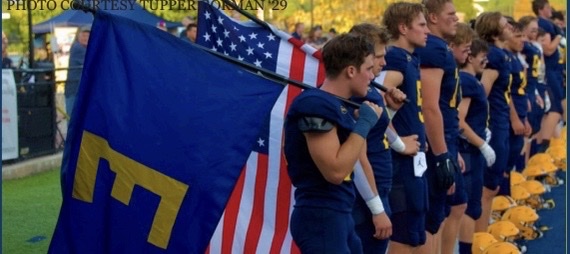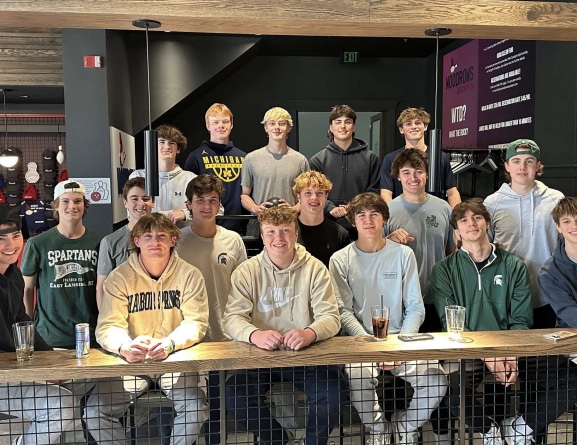When talking about collegiate football, the Midwest has always been in the shadows of the more passionate southern states. Teams like Texas, Georgia, LSU, Clemson, and Alabama have been absolute powerhouses throughout the history of college football. Historically the Big Ten, while a competitive division, has not found big-time success on the big stage since the beginning of the 2000s. Ohio State, the most prominent of the Big Ten football programs, was able to secure a national championship in 2002 and 2014. No other teams have been able to replicate their success, although one team is on the brink of such an achievement.
Known for our beautiful waters, Motown music, and the automotive industry, football is developing into a sense of pride for Michiganders. While the Spartans have found success in recent years, the University of Michigan football program has become a dominant force in the country going undefeated in the regular season and winning “The Game” three years in a row.
Michigan’s recent dominance has been credited to the strategic coaching by Jim Harbaugh, star QB JJ McCarthy, running back Blake Corum, a commanding O-line, and a phenomenal secondary. Amid all the hype, the question of potential sign stealing from the Michigan coaching staff was brought to the table for the NCAA to investigate. Signs are a form of play calling in which the staff communicates with their players through hand signals and graphics on the sideline. Michigan coaches reportedly scouted future opponents, memorizing their signals and what they meant. This gives the team whether it is offense or defense a competitive advantage.
With every plan, there is a mastermind behind it. Conner Stallions football analyst for the Wolverines was the brains behind the scandal. Stallions reportedly scouted future opponents in person, something that is strictly prohibited in the NCAA. According to ESPN, Michigan’s alleged sign-stealing scheme dates back to 2021. Sign stealing is not the only thing on his controversial resume. He reportedly wrote a 550-600 word “Michigan Manifesto” which includes his plans to take over the head coaching job.
At the height of all of the drama, Stallions resigned from his job. Head coach Jim Harbaugh along with the rest of the staff denied the allegations. Regardless, Harbaugh was suspended for the last three games of the season against #10 Penn State, Maryland, and #6 Ohio State. Michigan prevailed without their coach on the sideline winning all three games and securing a Big Ten title.
Despite the controversy, Michigan maintained its college football playoff eligibility. This raised some eyebrows in the college football community. Michigan’s actions whether it was a few people or one staff member was cheating. Academically, cheating results in failing the assignment or even the class. Legally, cheating results in jail time. Somehow, Michigan was let off with a three-game suspension for head coach, Jim Harbaugh. Assistant coach Michigan Sherrone Moore filled in the head coach position. Yes, Michigan cheated, and the ethics behind the NCAA’s rules could be questioned. But their rules are concrete, and cannot be broken.
Michigan is a phenomenal football team with an abundance of talent. The question that everyone has asked is… why? With a talented team and a great coach, why did they feel the need to bend the rules?





